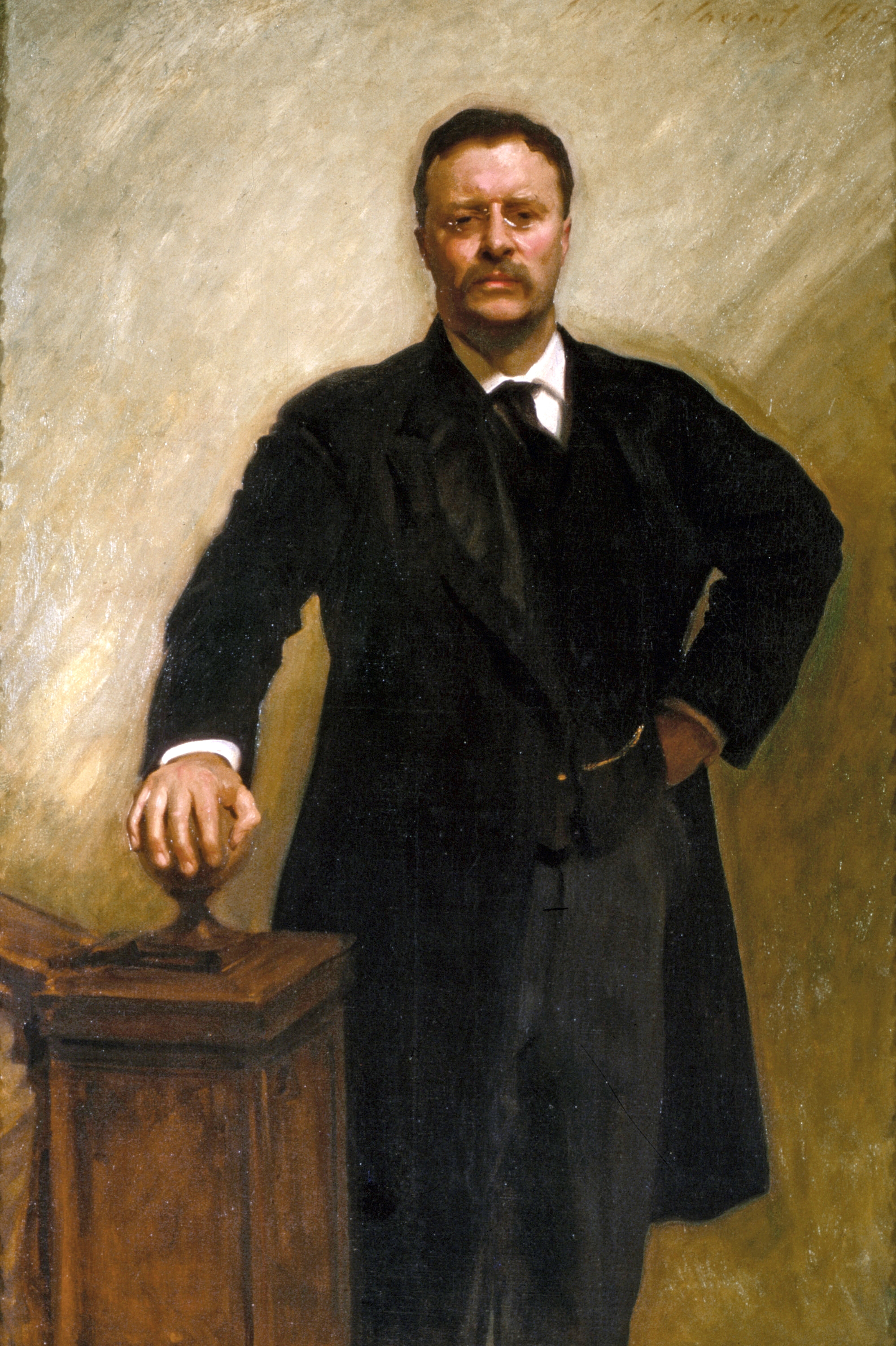Julian Adler, a senior at the Bronx High School of Science, recently won the Theodore Roosevelt Public Speaking Contest, which is organized annually by the Theodore Roosevelt Association (TRA), for the New York City public schools. (I’m Julian’s proud uncle).
His topic—Teddy Roosevelt’s intervention to save college football—has a family connection: Julian’s great-grandfather, Carl S. Flanders, played center on the 1905 undefeated Yale team and was named a Walter Camp All-American (second team). Julian will follow Carl’s lead and head to New Haven to join Yale’s Class of 2018 in the fall.
The text of Julian’s award-winning speech follows.
TR Tackles College Football
Julian Adler
If you were one of the 112 million people watching the Super Bowl this year, you might have seen—through a veil of tears—the Seattle Seahawks obliterate the Denver Broncos. Some people blamed Payton Manning, and others praised Russell Wilson. But the real unsung hero is none other than our 26th president, Theodore Roosevelt.
One hundred years ago, football was in trouble. The sport, played mostly by college students, was virtually unregulated, and lent itself to gruesome injuries. The 1905 season was nicknamed “The Death Harvest,” leaving 137 players hospitalized and nineteen corpses on the field. As mothers received notices of their children dying at school, there was a popular movement to make football illegal altogether. “The once athletic sport,” wrote the Beaumont Express, “has degenerated into a contest that in its brutality is little better than the gladiatorial combats of ancient Rome.”
Now, Theodore Roosevelt was a strong advocate of what he called “the strenuous life.” Friendly competition, he believed, brought out the best in people, and should be encouraged. But even Roosevelt admitted that the brutality of football had gotten out of hand. And, moreover, Roosevelt’s son, Theodore Jr., had started playing the sport.
“What to do?” thought Roosevelt. How can football be saved, without putting the lives of its players at risk? How can an American pastime be maintained without having to chance death? As Roosevelt thought about the issue, more and more colleges started dropping football from their campuses. Stanford banned the sport in 1905 followed by Columbia, Northwestern, and Duke. But it wasn’t so much the sport itself, thought Roosevelt, but rather how unregulated it was that was the problem. As Roosevelt wrote to a close friend toward the end of 1903, “I can make an effort to minimize the danger.”
In 1905 Roosevelt invited representatives of all the major colleges to the White House. He explained that football was on the verge of death, but didn’t need to be as long as reforms could be made. This was not the easiest argument to make.
These universities truly hated one another. It was more than rivalry—it was a way of life. After losing the 1894 football game to Yale for instance, Harvard cut off all official communication with the University for over two years. Four years later Harvard students were arrested for shooting a bulldog—the symbol of Yale—in Harvard Yard. Moreover, there was a great deal at stake. Each one of these games drew over 50,000 people and there was a lot of money to be made and not much incentive for reform. But in the course of one day, Roosevelt convinced these universities to establish an intercollegiate league. This Intercollegiate Association of the United States, renamed four years later as the National Collegiate Athletic Association, is better known today as the NCAA.
I love this story.
And it’s cute to think that Roosevelt took such a personal interest in student sports. But in a larger sense, his actions reflect and demonstrate all the qualities that make him remembered. All the qualities that make him loved.
We see Roosevelt preserving something distinctly American. Just as he did with the creation of the National Parks, Roosevelt ensured that something on the verge of destruction survived for future generations.
We see Roosevelt saving something from the evils of itself. Just as he did with his “trust-busting,” Roosevelt regulated an existing system to make it better, and the competition more constructive.
We see Roosevelt caring for his children. TR was famous for having his kids running around the White House, and playing with them. And with regulating football, Roosevelt is caring for his son, and exercising his famous paternal qualities.
We see Roosevelt stepping in as a third party to foster negotiations. Just as he did with brokering the Russo-Japanese peace treaty, Roosevelt gets two fiercely opposed sides to come together and reach an agreement.
And finally, we see Theodore Roosevelt acting like…Theodore Roosevelt. Just as with his rough riding and hunting and cowboying, Roosevelt displays the rugged masculinity for which he was so famous. Of football Roosevelt once wrote, “it’s like life—the principle to follow is simple: hit the line hard; don’t foul, don’t shirk, hit the line hard.”
This may seem like a small story—a small aspect of Teddy Roosevelt’s life and career—but it is exactly stories like this that make him worth remembering. It is exactly because of stories like this that we talk about him, and write about him, and think about him today. He was a man who cared for much, and fought and strove and struggled to protect the things he cared about. In virtually any anecdote you tell about him, you can see reflected his boundless energy and his desire to improve the world around him.
My point is that with a man like Teddy Roosevelt you don’t have to search hard to see why he is great. You don’t have to pick his grandest action to see the characteristics for which we remember him. In everything he did we see his love for country, for his fellow man, and for just plain old fun.
And you don’t have to be a fan of football to appreciate that.
Copyright © 2014 Julian Adler
All rights reserved

